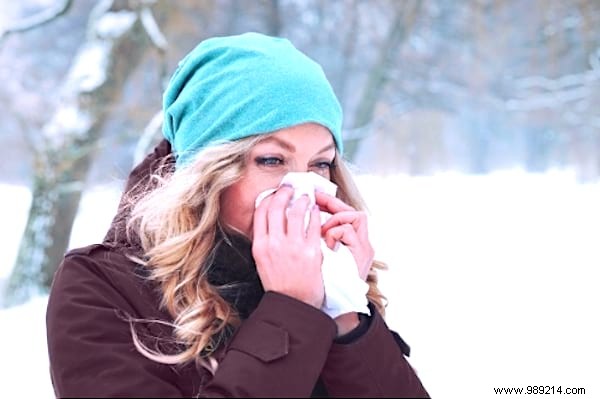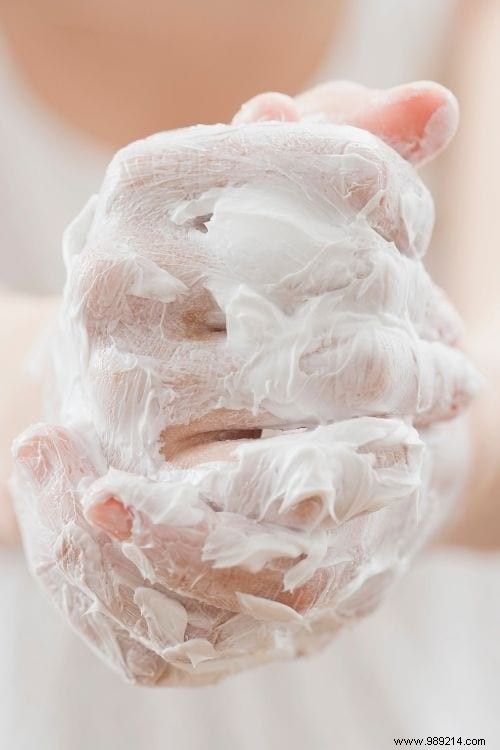
"Don't go out without your coat or you'll catch cold! "
You've probably heard this one before...
When you get sick, you often blame the cold.
But contrary to popular belief, it's not technically the cold that makes you sick!
Indeed, catching cold does not make you sick. So, once and for all, let's stop with this myth and this received idea.
No, it's not the cold that gives you a cold or the flu. In any case, not directly.
But then, why do we get sicker in winter? Explanations:

No, "catching cold" does not make you sick.
The real culprits are viruses, in particular the rhinovirus which is the first cause of colds and flu (source 1).
But beware, that doesn't mean that being wet and cold in low temperatures is a good idea.
Even if technically, the cold is not directly responsible, there is still a factor that increases the risk .
When the thermometer shows low temperatures, viruses tend to stay contagious longer and spread faster.
Including our famous rhinovirus, responsible for colds and flu.
Specifically, cold temperatures alter the outer membrane of the influenza virus, making it firmer and more elastic (source 2).
According to the researchers, when this membrane becomes more elastic, it facilitates the transmission of the virus from one person to another.
But that's not all…
During periods of dry, cold weather (late fall and winter), there is an increase in flu cases.
According to this scientific study, dry and cold winter weather allows the flu virus to survive longer (source 3).

How your immune system reacts in cold weather can also play an important role.
In fact, inhaling cold air can decrease the immune response in the respiratory tract, which increases the risk of contamination by a virus (source 4).
It is for this reason that it is recommended to wear a scarf that covers the nose and mouth.
To discover: 6 Super Stylish Ways to Tie Your Scarf.
For most people, winter means a lack of sunshine .
This is problematic, as sun exposure alone can meet 80-90% of your vitamin D needs.
However, vitamin D is essential for the proper functioning of the immune system (source 5).
Physical activity, another important factor, also tends to decrease during periods of extreme cold.
Research indicates that the probability of postponing the practice of a physical activity is 3 times higher in the event of snow or ice (source 6).
To discover: Walking 30 Mins A Day:The 7 Incredible Benefits Everyone Should Know.

In winter, we are more often locked inside.
It also means closer contact with others, which increases the spread of certain diseases.
Respiratory viruses, for example, are usually transmitted within a radius of less than 2 meters around the infected person.
As a result, cold and flu viruses are transmitted more easily
In addition, the cold dries out the eyes and mucous membranes in the nose and throat.
However, cold and flu viruses are usually inhaled.
This means they attach more easily to dry, weakened airways (source 7).

To sum up, it's not being cold that makes you sick.
Even so, use these simple gestures to avoid getting sick throughout the year:
1. Wash your hands frequently. Use this simple and effective method to protect yourself from viruses.
2. Avoid touching your face. On average, we touch our face 9 to 23 times per hour. Did you know?
3. Drink enough water. It is recommended to drink 8 glasses of water a day, but this amount may vary depending on the person's lifestyle and size.
4. Eat balanced. Green leafy vegetables are particularly rich in vitamins that benefit the immune system. Eggs, fortified milk, salmon and tuna are all high in vitamin D.
5. Practice regular physical activity. Including in winter! But rest assured, no need to do a marathon every day. 15 minutes walk is enough.
6. Clean and disinfect surfaces frequently touched parts of your home (keyboards, telephones, doorknobs, light switches, etc.) with this 100% natural disinfectant.
7. Take inhalations if you have a dry throat or stuffy nose in winter. Or try using a humidifier like this.